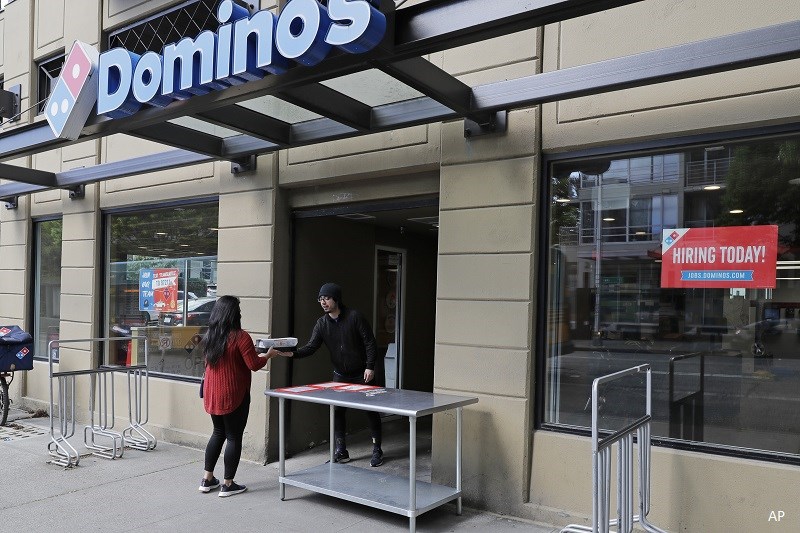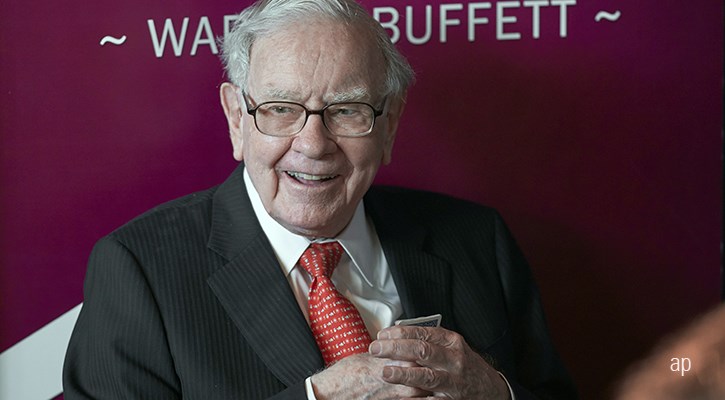
At a time when the COVID-19 pandemic has brought many sections of the global economy to a grinding halt, telecom operators are proving to be a reliable economic engine, helping a range of essential and non-essential businesses, institutions and individual consumers to continue to function, offer critical services, and, in many cases, survive.
Legacy telecommunications companies on both sides of the U.S.-Canada border have weathered the coronavirus crisis with relative ease. The fact that their stocks haven’t taken a beating as severe as those in other sectors, is an undeniable evidence of their safe-haven characteristics. Reliable phone and internet services are essential to modern life and business. For this reason, telecom companies enjoy a relative immunity from the vagaries of economic and natural forces.
Leading operators both in the U.S. and Canada have adapted their operations and services to help mitigate the impact of the virus both on their bottom line and their consumers’ lives. Beyond the short-term consequences of the pandemic, these carriers are well placed on a long-term growth runway paved with a conspiracy of factors – 5G roll out, subscriber growth, remote working trend – as well as strong fundamentals. Their stocks are also trading at a sizeable discount to their fair value estimates, which makes them attractive investment prospects.
| Verizon Communications Inc | ||
| Ticker | VZ | |
| Current yield: | 4.46% | |
| Forward P/E: | 11.56 | |
| Price | US$55.58 | |
| Fair value: | US$59 | |
| Value | Fairly valued | |
| Moat | Narrow | |
| Moat Trend | Stable | |
| Star rating | *** | |
| Data as of May 28, 2020 | ||
The largest U.S. wireless carrier, Verizon (VZ) serves about 89 million postpaid and 4 million prepaid phone customers and connects another 24 million data devices on its nationwide network. The firm has been investing in fiber network construction which have supported the wireless business and expanded fixed-line capabilities. Verizon’s media arm owns AOL and Yahoo.
“Verizon’s strong position in the wireless business should produce stable revenue and cash flow,” says a Morningstar equity report, noting that the company has built a high-quality wireless and fixed-line network. Morningstar sector director Michael Hodel, points out that “leading scale enables Verizon to generate the highest margins and returns on capital in the industry.”
The telecom giant “weathered COVID-19 reasonably well during the first quarter,” he adds. While wireless service revenue in the second quarter is forecast to fall due to lower overage charges, waived late fees, and customer losses due to the economy, “several of the causes should dissipate over the course of the year,” asserts Hodel, who pegs the stock’s fair value at US$59, and asserts Verizon will continue to “outperform its rivals in the wireless industry.”
| AT&T Inc | ||
| Ticker | T | |
| Current yield: | 6.53% | |
| Forward P/E: | 10.08 | |
| Price | US$31.05 | |
| Fair value: | US$37 | |
| Value | 14% discount | |
| Moat | Narrow | |
| Moat Trend | Stable | |
| Star rating | **** | |
| Data as of May 28, 2020 | ||
The second largest U.S. telecom giants, AT&T (T) generates nearly 40% of revenue from its wireless business. The firm connects more than 100 million devices, including 63 million postpaid and 16 million prepaid phone customers. It also has a consumer and entertainment segment (about 25% of revenue) and owns valuable media assets including HBO, the Turner cable networks, and the Warner Brothers studios, all of which combined contribute nearly 20% of revenue.
AT&T remains a formidable presence in the recently consolidated U.S. wireless market where three leading players control 90% of the market. “AT&T’s scale in wireless still gives it an advantage,” says a Morningstar equity report, adding that the firm “remains slightly larger than the new T-Mobile following its acquisition of Sprint.”
While not immune to the effects of the virus outbreak, AT&T’s first-quarter results display the resilience of the business. Despite taking a US$430 million hit in the quarter, “the net impact on profitability otherwise was not material, with several business impacts offsetting one another,” says Hodel, who puts the stock’s fair value at US$37.
| BCE Inc | ||
| Ticker | BCE | |
| Current yield: | 5.91% | |
| Forward P/E: | 17.48 | |
| Price | $56.90 | |
| Fair value: | $65 | |
| Value | 13% discount | |
| Moat | Narrow | |
| Moat Trend | Stable | |
| Star rating | **** | |
| Data as of May 28, 2020 | ||
Canada’s leading wireless and internet service provider, BCE (BCE) offers wireless, broadband, television, and landline phone services nationwide. The firm also has a media segment comprising television, radio, and digital media assets. BCE licenses the Canadian rights to movie channels including HBO, Showtime, and Starz.
On the wireless side, BCE remains a leader and one of three big national rivals which leave little room for any competition. “Rogers, BCE, and Telus share 90% of the total market, and we don't foresee any upstarts that lack national networks or such large subscriber bases, as these three have, matching the scale of these firms any time soon,” says Morningstar equity analyst, Matthew Dolgin.
Further, BCE has a high-quality and diversified media unit possessing superior assets than rival Rogers, he adds. BCE owns or has exclusive Canadian rights to 30 television channels, over 100 radio stations, and broadcast rights for a multitude of sports teams, leagues, and events, notes Dolgin, who recently pared the stock’s fair value from $68 to $65, due to the pandemic hit..
| Rogers Communications Inc Class B | ||
| Ticker | RCI.B | |
| Current yield: | 3.48% | |
| Forward P/E: | 16.58 | |
| Price | $57.57 | |
| Fair value: | $64 | |
| Value | 10% discount | |
| Moat | Narrow | |
| Moat Trend | Negative | |
| Star rating | **** | |
| Data as of May 28, 2020 | ||
Canada’s largest wireless service provider, Rogers (RCI.B) has more than 10 million subscribers, or about one third of Canada’s households. The operator’s wireless segment accounts for over 60% of the total sales and has been increasingly contributing a bigger portion of total company sales over the years. Rogers' cable segment (one fourth of total sales) offers home internet, television, and landline phone services. The telecom behemoth’s media unit comprises various television and radio stations and the Toronto Blue Jays.
Rogers has lowered the concern it was falling behind rivals Telus and BCE, by investing heavily in its wireless network. “It was the biggest spender in 2019’s 600-megahertz spectrum auction, procuring 80% of the available spectrum and allowing for coverage in every province,” says a Morningstar equity report.
“While the COVID-19 pandemic will likely pressure near-term results of all Canadian telecom firms, we expect Rogers to remain an industry leader,” says Dolgin, who recently reduced the stock’s fair value from $67 to $64, due to the COVID-19 impact.























